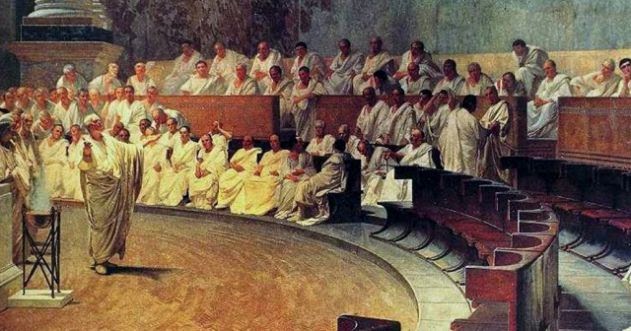St. Apollonius
St. Apollonius
Marcus Aurelius had persecuted the Christians from principle, being a bigoted Pagan: but his son, Commodus, who, in 180, succeeded him in the empire, after some time, though a vicious man, showed himself favorable to them out of regard to Marcia, a lady whom he had honored with the title of empress, and who was an admirer of the faith. During this calm, the number of the faithful greatly increased, and many persons of the first rank enlisted themselves under the banner of the cross, of which number was Apollonius, a Roman senator. He was a person very well versed both in philosophy and the Holy Scripture. In the midst of the peace which the church enjoyed, he was publicly accused of Christianity by one of his own slaves, named Severus, before Perennis, prefect of the Prætorium.

The slave was immediately condemned by the prefect to have his legs broken, and to be put to death, in consequence of an edict of Marcus Aurelius, who, without repealing the former laws against convicted Christians, ordered by it that their accusers should be put to death. The slave being executed, pursuant to the sentence already mentioned, the same judge sent an order to his master, St. Apollonius, to renounce his religion as he valued his life and fortune. The saint courageously rejected such ignominious terms of safety, wherefore Perennis referred him to the judgment of the Roman senate, commanding him to give an account of his faith to that body. At which point the martyr composed an excellent discourse in vindication of the Christian religion, and in a full senate gave a public discourse. St. Jerome, who had perused it, did not know whether more to admire the eloquence, or the profound learning, both sacred and profane, of its illustrious author: who, persisting in his refusal to comply with the condition, was condemned by a decree of the senate, and beheaded, about the year 186 by Commodus the sixth.

Excerpted from Butler’s Lives of the Saints, 1886